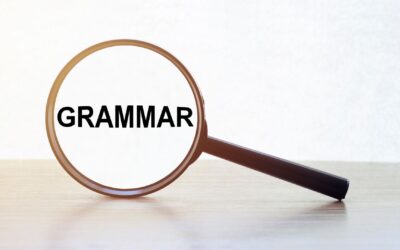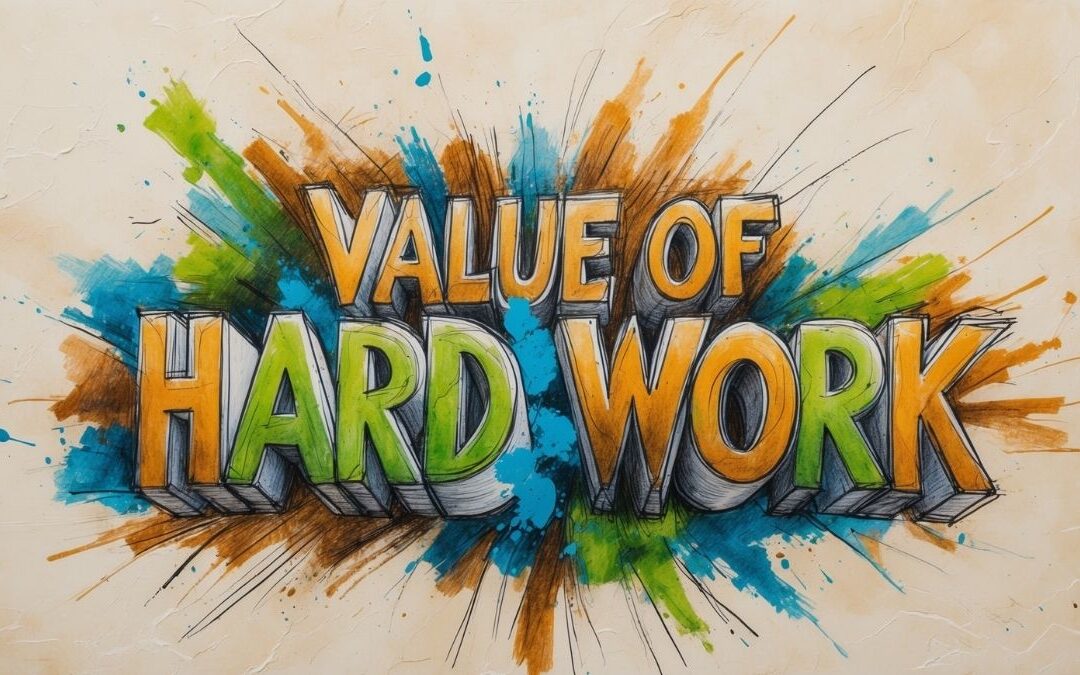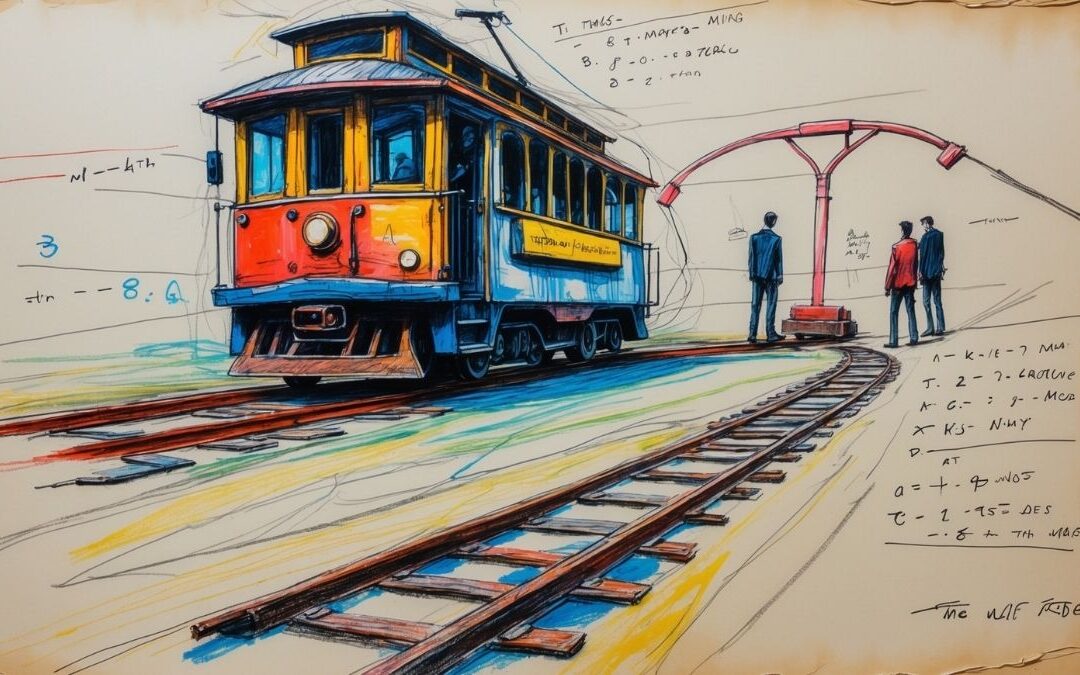Practice Worksheet
PDF Download Link
Transcript
Disclaimer
I am using an automatic transcript service as it is not possible for me to do it on my own and I cannot afford human transcription at the moment. The service claims to have about 95% accuracy, which means there will still be some mistakes, so my apologies for having a less than perfect transcript, but I hope I can afford human transcription soon and I will solve this problem. However, the service is pretty good, and the transcript is almost perfect.
Transcript
Welcome to a new episode from English plus podcast. Today’s episode is about grammar and we will talk about conditional sentences. Well, this might sound a little bit tricky or confusing to you, but I promise you, by the time you finish listening to this episode, everything will be so clear. So without further ado, let’s start with an overview of the basic verb forms used in conditional sentences.
[00:00:31] And then we will dive into details about these different types. Now conditional sentences express the idea of, if something happens, then something happens. Now, these sentences can talk about real situations like facts, regularly occurring events, for example, or unreal situations. And these are imaginary or impossible situations.
[00:00:53] And to count the different types of conditional sentences we can count for because the situation can be real in the present or real in the future. And here we have two different kinds of conditional sentences and the situation can be unreal in the present or the future or unreal in the past. And here we have our second type.
[00:01:16] And third type. These can be called sometimes zero conditional for real and present real in the future. That’s the first conditional unreal in the present or future that’s the second conditional unreal in the past is called the third conditional. Now it doesn’t matter what you call them or how you want to remember them.
[00:01:35] It’s up to you. But what we care about is the meaning. And here as an overview, let’s take a look at the basic verb forms that we use with these four different types. Now for real in the present, we use this simple present in the if clause and we use the simple present in the result clause as well. For example, we say, if I have enough time, I watch TV every evening.
[00:01:59] That is in general. We’re not talking about a specific situation. We’re talking about things in general. If I have enough time, I watch TV every evening. But let’s move now to the real in the future. That’s the first conditional as it is usually called, we still use the simple present in the if clause.
[00:02:17] We’re still say if I have enough time, but in the result clause, instead of using the simple present as well, we use the will with zero form. So we say, if I have enough time, I will watch TV later on tonight. This is different from the first sentence or for the first example, I told you about that in this situation here, we’re talking about a specific action or a specific thing that will happen in the future, but it is still real.
[00:02:45] If I have enough time tonight, I will watch TV, but sometimes we can talk about things in the present or the future, but they are unreal. And for this one, we use the simple past. And if clause and here it gets a little bit confusing because since we’re using the simple past, you might think, Oh, this is the past, right.
[00:03:06] We use the simple past to talk about the past. Yeah. In general. Yes we do. Of course, when we want to talk about the past, we use the simple past, but not in conditionals and conditionals to differentiate between real situations and unreal situations. In the present or the future, we use simple present for real situations and we use simple past for unreal situations.
[00:03:32] And instead of will, in the result clause, we use wood. So here, going back to the same example, let’s say that I know for a fact that I don’t have time, it’s impossible because I already know that I have work or I have something else to do. So if I say, if I have time, that would be. Wrong because that is unreal.
[00:03:53] It is not real that I have time. I know that I don’t. But hypothetically, let’s talk about it in an unreal way, conditional in an unreal way. That’s by the way, the second conditional, we can say, if I had enough time, I would watch TV now or later on, but I know that I don’t have time and I know that I will not watch TV.
[00:04:14] I know that that is unreal. That’s not true. So that is the second conditional. What if we want to use unreal in the past, do we still use the simple past? No, that would be confusing because how would you tell that this is past, or this is present the time of the sentence? How, how can we tell? So to differentiate between unreal in the present and the future, which we use the simple past four and unreal in the past, we use the past perfect.
[00:04:43] In the if clause. And we use would have, and best part is supple in the result clause instead of wood and zero four. So the same sentence again, we say if I had had enough time that’s past perfect. I would have watched TV yesterday. But you know what the truth is? I didn’t have time or I didn’t have enough time yesterday and I didn’t watch TV.
[00:05:06] That’s the truth. That’s the reality of the situation. But I’m talking about something that is unreal in the past, and that is the condition. And that is the way we call it. The third conditional, if you want to keep track, the first one is zero first, second, and this is the third conditional. We have all in all four different types of conditionals.
[00:05:27] But that is just an overview. Now let’s dig in a little bit deeper, but before we dig in a little deeper, let me remind you that you can find exercises. You can use to practice the things you’re learning in our episodes on our website, English plus podcast.com. There is a link that will take you to the custom post we have created for this specific episode.
[00:05:45] As we do with all our episodes, we have custom posts for every episode, we add interactive exercises. We add PDF downloadable worksheets, show notes, transcripts. Everything that might help you practice and maximize your learning from what we’re talking about in English plus podcast, of course, you will find the link to our website in the description of this episode.
[00:06:08] So take the link and take your English with it to the next level. And there’s another link that will take you to our Patreon page. Take this link, go to Patreon and support us by becoming a patron of our podcast and help us grow more, reach more people and create more content. Now with that being said, let’s start talking about some details and let’s start talking about expressing real conditions in the present or the future.
[00:06:31] So let me start with a couple of examples. If I don’t eat breakfast, I always get hungry during class. If I don’t eat breakfast tomorrow morning, I will get hungry during class. So here we have two sentences that are very close to each other, but there is a slight difference in the first one. And the second one we said, if I don’t eat breakfast, so we use the present simple.
[00:06:55] But in the result clause that then clause, I always get hungry. That’s present simple in the first one and I will get hungry. That is the future form will end zero forum in the result clause. So what is the difference between these two now in conditional sentences that express real or true factual ideas in the present or the future?
[00:07:17] The simple present is used in the if clause. That’s what we know. And that is what we’ve seen so far. But the result clause here is the difference between these two different types of conditionals there’s out. Clause has different possible verb forms are result. Clause. Verb can be the simple present to express a habitual activity or a situation like in the first example I gave you.
[00:07:41] If I don’t eat breakfast, I always get hungry during class. That is not something that will happen tomorrow or the day after tomorrow. Whenever this happens. Whenever I don’t eat breakfast, I get hungry. So it’s a habitual thing. Like if we say, for example, water freezes, if the temperature reaches 32 degrees Fahrenheit or zero degrees Celsius.
[00:08:04] So that is a fact that is a habitual that will happen every time. And the more important thing is that I’m talking about it in the sense, what I mean to talk about is to talk about this habitual activity. I’m not talking about a specific activity, the simple future, which is we’ll. As we said, if I don’t eat breakfast tomorrow morning, I will get hungry.
[00:08:25] Or even in the second example I gave you water will freeze. If the temperature reaches 32 degrees Fahrenheit, or zero degrees Celsius. That is different. If we use the simple future to express a particular activity or situation in the future, this is what we do. So here you might say both meetings are kind of the same, you know, why should we bother and have two different kinds of conditionals here?
[00:08:47] Yeah. It’s simply the difference between talking about things in general or talking about specific things. That’s the whole difference. Again, if you want to talk about things in general, use the present simple in the result clause. If you want to talk about things. In specific or specific occurrences of things, you can use the future simple, which is will, and the zero form of a verb.
[00:09:12] So that is about the first two different types. But remember, we’re still talking about expressing real conditions in the present or the future. But let’s talk about a couple of more details we should know about when we want to express real conditions in the present and the future. Now the result clause can also include models and phrasal models such as should, might, can, or be going to, for example, we can say if it trains, we should stay home or if it trains, I might decide to stay home.
[00:09:41] Or if it rains, we can’t go or we’re going to stay home. All of these are possible. It’s not just will. Now we’ll of course is the most common model verb we use in the result clause, but it’s not the only one. And we can also use imperatives and imperative verb can be used in the result clause back. When we say, if anyone calls, please take a message.
[00:10:02] That’s an imperative verb, right? And sometimes we can even use should in this sense, in this example, if anyone calls, please take a message. We can say, if anyone should call, please take a message. Now, when we use should like that in the, if clause, it indicates a little more uncertainty than the use of the simple present, but basically the meaning is kind of the same.
[00:10:23] So you can use both. So that is about expressing real conditions in the present and the future. Now let’s talk about expressing unreal or contrary to fact situations in the present or the future. And this is what we call the second conditional. If you’re still keeping track of the numbering of conditional sentences.
[00:10:44] And here we use the past simple to talk about things in the present or the future. But the key thing is that they are unreal. They’re not real. They’re contrary to fact, let me give you a couple of examples. If I taught this class, I wouldn’t give tests. Or if he were here right now, he would help us. Or if I were you, I would accept their invitation.
[00:11:10] Now here, just again quickly, let’s take a look at the form we use past simple. If I taught if he were, if I were. And in the result clause we use would, or wouldn’t obviously with the zero form of the verse. So we said, wouldn’t give, he would help. I would accept. So that is the form we used, but the more important thing, the meaning, what do we mean by that?
[00:11:36] If I taught this class, I wouldn’t give tests. Well, actually I don’t teach this class. Actually the fact, the reality is not the same. What I’m saying is contrary to reality is unreal. If I taught this class, well, guess what? I don’t teach this class. And of course I wouldn’t give tests because I can’t, I can’t, because I don’t teach this class.
[00:11:59] So here, the situation is unreal. Remember that, but still it is in the present or the future. The meaning is present or future. If he were here right now, right now that’s present. Right. But if he were here, but guess what, actually, he’s not here right now. It’s unreal. It’s contrary to fact that is why we use the second conditional.
[00:12:21] Or obviously when I say, if I were you, well, of course I am not you and I can never be you. That is unreal. And here it’s obviously impossible. I would accept their invitation. Yeah. We use that to give advice. Usually if I were you, I would do this. If I were you, I would do that. But as a conditional, we use the second conditional we use the past simple, we use would end zero forum to talk about unreal situation.
[00:12:47] Now, please note here that we’re is used for both singular and plural subjects. So yes, we know that we use was with it, but we use word for all of them, because if you notice, I said, if he were here right now, I didn’t say if he was here. And I said, if I were you, I didn’t say if I was, you. But saying that was, is sometimes used in informal speech and informal speech.
[00:13:13] And speaking in general, it’s you will hear people say, if I was, you I’d accept their invitation, but that is not grammatically correct, but it is still being used in speaking in very informal speech. So that is about using conditionals to talk about unreal situations, situations that are contrary to fact.
[00:13:33] But still in the present or the future. Remember we use the past simple with if clause and we use would end zero form in the result clause, but it’s not always would, I can say if I had enough money, I would buy a car or I can say, for example, if I had enough money, I could. Buy a car now here still of course the situation is not real.
[00:13:55] And I know that I don’t have enough money. That’s why I said if I had enough money, but here, let me just compare these two using would or could not. In the first example, when I said, if I had enough money, I would buy a car. The speaker wants a car, but doesn’t have enough money would express as desired or predictable results.
[00:14:14] But in the second one, this slight difference is that the speaker is expressing one possible result. Could would be able to, could express as possible options. Oh, you know, these are some nuances. All I’m trying to say is that there are other options as well. You can use other options, but don’t get stuck with these little differences.
[00:14:34] The most important thing to remember is we’re talking about unreal situations in the present or the future. And that leaves me with one final type of conditional. And that is unreal situations in the past. How do we do that? Let’s see, let’s take a look at these examples. If you had told me about the problem, I would have helped you, or if they had studied, they would have passed the exam.
[00:15:03] Or if I hadn’t slipped on the stairs, I wouldn’t have broken my arm. Well, here we have the best perfect used in the, if clause, if you had. Told that’s best. Perfect. If they had studied, that’s also passed. Perfect. If I hadn’t slipped, that’s also pass. Perfect. And in the result clause, we use wood, but not with zero form pay attention would have helped, would have.
[00:15:31] And the past participle, so would have helped you. That’s the first one they would have passed the exam, or I wouldn’t have broken my arm. But again, remember? Yes, we talk in about the past here. This is the one where we talk about the best, the only conditional, where the time is the past. And he, when you say, if you had told me about the problem, that is unreal, because guess what, actually, you did not tell me about it.
[00:15:57] If you had told me about it, but you did not, I would have helped you, but I could not help you. Or I did not tell you because you didn’t tell me that’s the real situation. And the second example if they had studied, but guess what? They didn’t study and therefore they failed the exam, but I’m just saying if they had studied, they would have passed the exam.
[00:16:18] And usually people hate the third conditional, especially if you’re talking about things after the fact, if you go to a person and tell him that if you had studied, you would have best exam. Oh, really? Uh, tell me something, I don’t know. I would say that you need to pay attention. Don’t use that to give unnecessary advice, you know, just use that to talk about unreal situations, but try to avoid using that to give unnecessary advice.
[00:16:42] And that is like, if I had been you, I would have done this, that I ha I would have done that, but that’s over it’s in the past, it’s gone. Nothing can change that. It’s different from the present. Unreal. When I say, if I were you, I would do that. I’m just giving you advice and you can still do it. There’s still time because it is present.
[00:17:02] But here it’s over. It’s impossible to change what had happened. At least the thing that happened in the past, you know, if I hadn’t slipped on the stairs, but guess what? I slipped on the stairs and I broke my arm. I wouldn’t have broken my arm. Oh really? But I broke my arm. So here the third, conditional.
[00:17:19] Yes, it is useful in certain situations, but try not to use it, to give unnecessary advice. People hate that everybody hates that. Don’t try to keep reminding people of what would have happened if they had done this, or if they had done that or if they hadn’t done this or that that’s over. Get over it, help them get over it, but at least grammatically, we have to talk about it.
[00:17:43] There is a way you can talk about this. And some people are kind of a pain in the neck and they keep using that over and over. Don’t be one of these, please just learn how to use it and use it only when you really have to. But again, let me talk about the different model verbs that you can use. You can say, if I had had enough money, I would have bought a car, or you can say I could, the same thing, as we said, in the unreal situation in the present also in the past, you can use could, or would.
[00:18:10] So with that being said, that’ll be everything I wanted to share with you about conditionals. Of course, there’s more to talk about conditionals about mixed conditionals, about omitting, if talking about wish and other things that we might talk about in later episodes, but that’s all for today. Let me remind you again that you can find exercises.
[00:18:28] If you take the link that you will find in the description, go to the custom posts we created for this episode on our website, English plus podcast.com. Take the link and take your English with it to the next level. This is your host, Danny. Thank you very much for listening to another episode from English plus podcast.
[00:18:43] I will see you next time.










Thanks for sharing, it’s really helpful
My pleasure! I am glad you liked the content and benefitted from it.